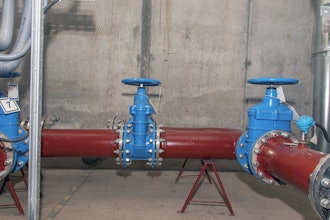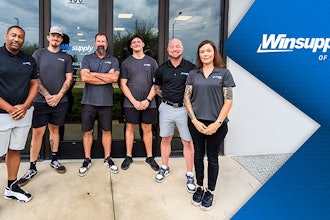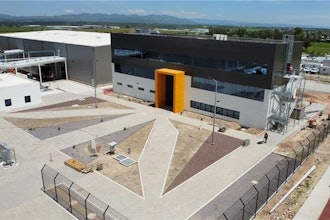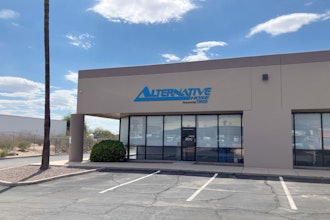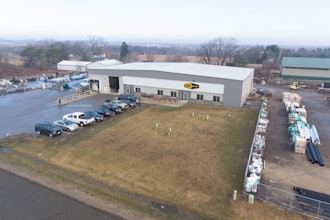
E-commerce solutions for the industrial products market are becoming a must-have for contractor suppliers. This comes with a mandate that combines the complexity of business-to-business with the ease of consumer simplicity. Ultimately, the right online solution can enhance, develop and support customer relationships. But it involves the relentless pursuit of the exact mix of data, technology, training and support.
In the end, it preserves the old-school relationships you’ve developed, adds a new-school solution for your customers and becomes a tool to spur new business.
A Rich History of Relationships
Contractor supply has historically been a relationship business. Customers go to the supply house and talk face-to-face with staff about the products needed for each project. The staff, in turn, gets to truly know the customers, developing relationships that extend beyond simply serving as order-takers.
What happens when we introduce digital tools and 24/7 data into this mix? Can we preserve these relationships without losing that personal touch? B2B e-commerce processes are substantially more complex than, say, someone voice-ordering a basic household staple. And B2B transactions often involve multiple people. But you can maintain that personal touch by tailoring the right online solutions to each customer. And you can create a platform for everyone involved in the transaction to get jobs done faster.
What Customers Want
Distributors are adapting to a changing buyer profile that expects online services. They should range from requesting and checking quotes, to reviewing local inventory and pricing in real time, to placing orders quickly for scheduled delivery.
More than half of suppliers are slowly investing in e-commerce systems and personnel. But that’s mostly to help current customers. Too many are not using e-commerce to win new business.
E-commerce is more than just creating a shopping cart. It’s a complete digital transformation.
A Complex Transaction
Customer needs differ across the industry, so regularly gaining their input is critical. It’s equally critical to gain input from every level of the supplier organization. At my company, MORSCO, when developing online solutions for each of our brands, we listen closely to customers, as well as our inside and outside sales teams, operations, accounts payable and other internal stakeholders. All these parties must be involved in discussions around the development of the solution. And after it has launched, they must be involved with the communication and training for the customer. It becomes part of everyday business, not just a one-time project.
Keep it Personal
Even with stakeholder input from all levels, e-commerce can seem, well, a little impersonal. However, the personal nature of the transaction can be maintained if the right online process can work seamlessly with the local branch.
With support from the staff at the local branches — particularly inside sales — and with communication from the local contractor, the face-to-face support and service will remain. Orders and any follow up should go through the local branch — not a call center — so customers know they are still dealing with suppliers at the local level that understand their markets and their needs.
The right online solution also frees up time for the outside sales staff. With advanced features, like easy-to-use custom pricing and quoting tools, the outside team can better support new and potential customers at all levels. Instead of tracking down invoices and delivery slips, outside sales reps can leverage digital platforms in a way that sparks better conversations with customers and brings sophistication to a centuries-old industry.
Suppliers in the industrial products market, meanwhile, can continue to serve as personal consultants, troubleshooters and more, all in a face-to-face capacity. That provides better, faster service, while maintaining an unmatched level of local, personal support for customers.
Benefits for Vendors
E-commerce sites can also serve as a vendor’s marketing tool, salesperson and cashier. Benefits include:
- An easy and fast search experience for consumers of products and inventory at the local level.
- Mobile solutions like phone and tablet access that give customers the ability to search and order products anywhere, anytime, including on a job site.
- The ability to increase customer reach and become the preferred online vendor for customers.
- Increased sales and loyalty with existing and new customers.
The Right Solutions
So what does it take to offer world-class e-commerce?
- Create a Solution That Gets Jobs Done Faster: Help people get jobs done more efficiently and use the talent for higher-value tasks. Self-service support functions like viewing and paying invoices can now be done online, much more quickly, and at the customer’s convenience.
- Make it Complete and Easy-To-Use: Create a solution that can be accessed anywhere: on a desktop computer, in an office, or on a job site through a mobile phone. Offer technical documents, catalogs, component and accessory information, as well as substitute items and recommendations.
- Get Input from All Areas: Any online solution must be developed side-by-side with customers, and employees must buy-in and be trained.
- Offer Training: Invest in training and data so the solutions themselves become an indispensable part of customers’ everyday lives. Training should also be mandatory for all sales and branch staff, ensuring the face-to-face support can be seamless and add value.
- Offer Support: Levels of support that involve the local branch are critical for both your customers and your employees. Be sure all users know the types of support offered and that support tickets are addressed quickly and completely.
- Leverage Technology: Power your digital customer experience with top-tier e-commerce, search, marketing automation, analytics, and data platforms. At MORSCO, this gives customers the 24/7 access they need, increases our ability to make complex online transactions that vary by a customer’s needs and creates the customer value that goes beyond the online shopping cart.
 Darren Taylor, CMO at MORSCO
Darren Taylor, CMO at MORSCOThe Future
E-commerce in the industrial supply market can revolutionize the way the supplier and the contractor interact. Online solutions offer opportunities to redesign digital processes, clarify new business practices and benefit from greater efficiencies. The key to success is offering customers a fully personalized solution that enables them to perform all aspects of their jobs more efficiently, while freeing up sales associates to assist customers in more meaningful ways. In the rush to offer e-commerce solutions to customers, we must remember the importance of the long-standing relationship nature of the business and ensure that any solution supports full integration of the old and the new. Simultaneously to this transformation, industrial products are quickly becoming SMART and involve rapidly advancing technology.
It’s an exciting time for those who can adapt to change.
Darren Taylor is is CMO for https://www.reece.com/MORSCO, a U.S. distributor of commercial and residential plumbing, waterworks and HVAC, with branches and showrooms across the country. Taylor previously served as Director of e-commerce Strategy & Integration at W.W. Grainger, spearheading the company’s digital strategy and execution.











